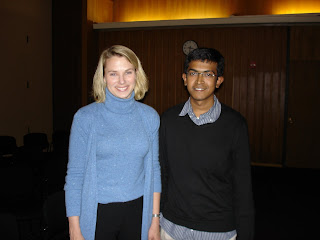
The title of today's post has only a vague connection with the substance of today's post. Today's post is about a betting strategy for roulette. This strategy has an intrinsic flaw and I am going to leave it to my readers to ponder as to what the flaw is. I'll explain the flaw in a later post.
In roulette, the casino houses typically offer odds such that the expected return is negative (which is how they stay in business). This can be shown as a direct consequence of the law of large numbers.
The betting strategy is remarkably simple. If you lose a round, you double your bet. This is also called 'doubling up' or the Martingale strategy. The intuition is that it is very unlikely that you will have a string of losses and you hope to cover your losses when you eventually win. You have to win sometime right? And at that time you would have recovered all your losses.
Do you see the problem with this strategy?








